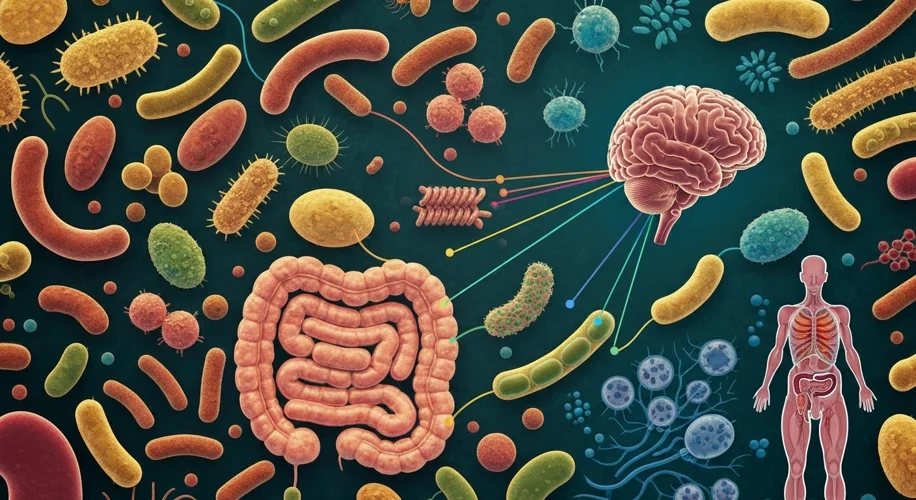Let’s talk about something happening inside all of us, right now: our gut microbiome. It’s a bustling city of trillions of microorganisms – bacteria, fungi, viruses, and more – living primarily in our digestive tract. For a long time, we didn’t pay them much attention, but now, science is showing us just how crucial this internal ecosystem is for our overall health.
Think of your gut microbiome as a complex community. Each microbe plays a role. Some help break down food that our bodies can’t digest alone, like certain types of fiber. Others produce essential vitamins, such as B vitamins and vitamin K, which are vital for everything from energy production to blood clotting. They also help train our immune system, teaching it to distinguish between friendly invaders and dangerous pathogens.
But what happens when this delicate balance is disrupted? This is where things get really interesting, and sometimes, concerning.
When the Balance Shifts
Several factors can throw our gut microbiome off-kilter, a state called dysbiosis. Antibiotics, while lifesavers, are a prime example. They don’t just target harmful bacteria; they can wipe out beneficial ones too, leaving the ecosystem vulnerable.
Diet plays a huge role. Diets high in processed foods, sugar, and unhealthy fats can feed less beneficial microbes, while a diet rich in diverse plant-based foods – fruits, vegetables, whole grains, and legumes – provides the fiber and nutrients that support a wider range of helpful bacteria.
The Gut-Brain Connection
Did you know your gut and brain are in constant communication? This two-way street is known as the gut-brain axis. The microbes in your gut produce neurotransmitters, like serotonin, which affect mood and behavior. It’s not a stretch to say that a healthy gut can contribute to a healthier mind. Conversely, stress and anxiety can also impact the gut microbiome, creating a feedback loop.
Dietary Strategies for a Happy Gut
So, how can we nurture this vital internal world? The good news is, simple dietary changes can make a big difference:
- Embrace Fiber: Aim for a variety of fiber-rich foods. Think whole grains, beans, lentils, fruits, and vegetables. Fiber acts as food for your beneficial gut bacteria.
- Fermented Foods: Incorporate foods like yogurt (with live and active cultures), kimchi, sauerkraut, and kefir. These naturally contain probiotics, which are live beneficial bacteria.
- Limit Processed Foods: These often lack fiber and can contain additives that may negatively impact your microbiome.
- Stay Hydrated: Water is essential for digestion and helps move things along smoothly.
Understanding our gut microbiome is a journey, and the science is constantly evolving. By making conscious choices about what we eat and how we live, we can actively support this incredible internal ecosystem and, in doing so, boost our overall health and well-being.

